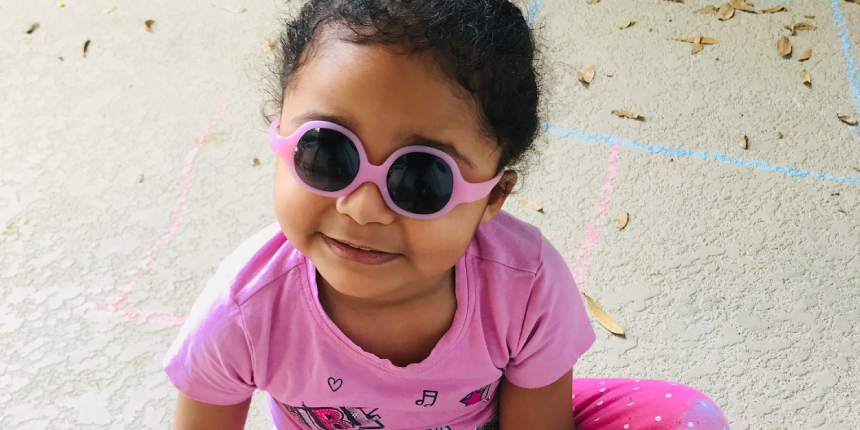Pediatric Feeding Difficulties Center
Pediatric Specialties
Contact Us
(321) 841.7116Feeding Difficulties Center
Experiencing feeding challenges with your child? First things first: You’re not alone. In fact, feeding disorders in children are common and can be the result of medical, behavioral as well as potential oral motor issues. Whether your child is developing typically or is developmentally disabled, the Orlando Health Arnold Palmer Hospital for Children Feeding Difficulties Center can support you through challenges such as food allergies, chewing or swallowing problems, digestion issues or picky eaters.
Comprehensive Care For Your Child and Family
The Feeding Difficulties Center team is made up of a highly specialized, multidisciplinary group comprised of:
- Gastrointestinal physicians
- Neurodevelopmental physicians
- Occupational therapists
- Speech and language pathologists
- Mental health professionals
- Licensed social workers
- Registered dietitians
These specialists work together to treat every aspect of your child’s condition and provide comprehensive, personalized care.
Equipping Families With the Tools for Success
Our patient-first philosophy ensures we consider every part of your child’s sensory, behavioral, oral motor or feeding disorder. We then provide family education and help find solutions to everyday eating obstacles. Here are some ways that we involve families and caregivers in our feeding care:
- Family-centered goals. We work closely with you and your child to develop skills and work towards appropriate, meaningful goals related to eating. We encourage all members of your child’s care team – including parents, older siblings, grandparents, aunts, uncles and nannies – to participate, learn and practice the strategies of our feeding program.
- Active involvement of families. In some pediatric therapy programs, parents remain in the waiting room while the therapist treats the child behind closed doors. Our team encourages parents to attend and participate in therapy sessions so they can learn and practice feeding strategies.
- Videotaping sessions for real-time feedback. As part of our commitment to positive family involvement, we can videotape therapy sessions as needed. We use these recordings to provide real-time feedback to parents and caregivers on how they are using strategies effectively, and what areas could use improvement. Additionally, when they aren’t needed in the therapy session, parents or other caregivers can observe from our observation room.
What to Expect at the Feeding Difficulties Center
To be seen by our team, your child will first need a referral from their pediatrician or another primary care provider. (Most insurance plans require a referral to be seen by a specialty provider). Once we have the referral, we will contact you to set up your child’s initial appointment with us.
Before the first visit, you will need to provide us with your child’s complete medical history, including past medical testing results, diet log and previous therapy records. If your child is in school, his or her teacher may need to fill out and return a teacher assessment. You will need to fill out our pre-appointment paperwork.
During your first visit at the Feeding Difficulties Center, you and your child will meet with our specialty team.
Once assessed at the initial visit, our team will work together to formulate a customized recommended care plan for your child. Depending on our assessment of your child – and the goals we work with your family to set – he or she will be cared for by a specialized combination of health care professionals and services. We will advise your family – as well as your child’s referring provider – of these recommendations, and we will work with you to move forward with any recommended care.
Our professional team takes the time to get to know your child so that we can create a customized care plan just for them. The services we recommend may include some combination of the following services:
- Intensive feeding program (frequency of visits and combination of services determined by your child’s unique needs, duration of program customized to your child up to 12 weeks in length)
- Rehabilitative Therapies, such as Occupational Therapy or Speech Language Pathology
- Nutrition services
- Behavioral therapy
- Additional medical testing
No two children’s care plans are exactly alike, and we pride ourselves on the expert recommendations and care plans we can provide to families due to our years of success in treating children with feeding disorders.
Before your child starts treatment, your family will meet with one of our social workers to determine your goals. Our team collaborates with your child and family to create meaningful goals based on your child’s current developmental status, specific feeding disorder and other personalized factors. For example, some common treatment goals include:
- Increasing the volume of food
- Eating appropriate foods for the child’s age and development
- Eating a wider variety of food textures
- We then measure your child’s success based on progression toward these personalized goals and adjust treatment as needed.
On average, children who undergo treatment in the intensive feeding program at Orlando Health Arnold Palmer demonstrate two levels of improvement in the types of food textures consumed, as measured using a International Dysphagia Diet Standardization Initiative (IDDSI) model of reporting. This means children who only ate foods like oatmeal now enjoy refried beans, while children who only ate foods like soft fruits now consume french fries or pancakes. More than 30 percent patients in this program exceed these levels. Likewise, 54 percent of patients using a G-tube at the start of the intensive program improved their consumed textures by mouth by two levels. Levels of improvement are based on your child’s developmental age and are assessed based on their individual diagnosis and personalized treatment plan.
Contact Us
For general information and questions about our program, please call (321) 841-7116, or email us at [email protected].









